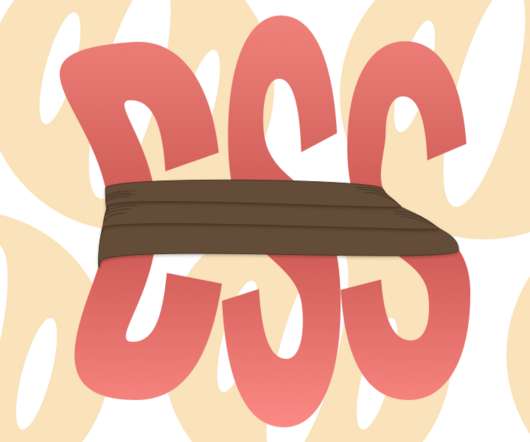Web Performance Bookshelf
Rigor
JANUARY 13, 2020
High Performance Browser Networking. This book is about the network, from fundamental limitations that affect performance to major innovations for building even more powerful browser applications. Web Performance Daybook-Volume-2. Designing for Performance. High Performance Responsive Design.












Let's personalize your content